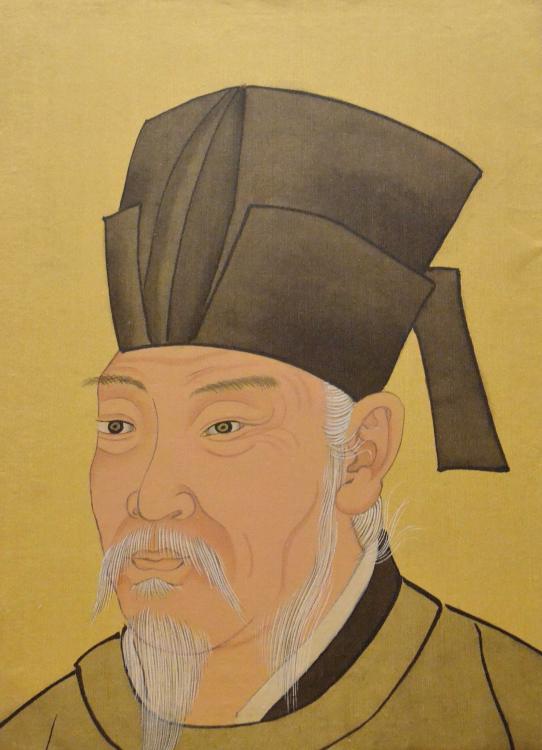Bai Juyi (772~846), courtesy name Letian, literary name Xiangshan Jushi, was a Chinese poet of the Tang Dynasty who used his elegantly simple verse to protest the social evils of his day, including corruption and militarism.
白居易(772~846),字乐天,号香山居士,中国唐代诗人。白居易用优美朴素的诗歌对当时社会的黑暗(包括腐败和黩武主义)提出了抗议。
Bai Juyi began composing poetry at five. Because of his father's death in 794 and straitened family circumstances, Bai did not take the official examinations for the bureaucracy until the late age of 28. He passed them and also did extremely well at another examination he took two years later.
白居易5岁开始作诗,但是794年因为他父亲去世家庭环境贫困,白居易28岁才参加科考,但是白居易一次就中了进士,而且两年后又以“拔萃”登科,做了校书郎。

As a result, he was given a minor post at the palace library, as was another successful examination candidate and poet, Yuan Zhen. They shared views on the need for both literary and political reform, and their lifelong friendship became perhaps the most famous in Chinese history.
白居易的同年,另外一位诗人元稹与他共事,他们都认为需要进行文学改革和政治改革,彼此间终生的友谊可能是中国历史上最著名的。
In 807, Bai became a member of the prestigious Hanlin Academy in Chang'an, the capital, and he rose steadily in official life, except for his banishment in 814 to a minor post at Jiujiang, which arose from the slander of rival courtiers.
807年白居易入翰林院,他的官职稳步上升。但是814年白居易因受政敌的诽谤而迁九江郡司马。
He assumed the important posts of governor of Zhongzhou (818), Hangzhou (822), and later, Suzhou.
白居易先后担任过忠州刺史(818 )、杭州刺史(822)和苏州刺史。
In 829 he became mayor of Luoyang, the eastern capital, but he retired from that post in 842 because of illness.
829年白居易以太子宾客分司东都洛阳。842年病退。
Bai was the informal leader of a group of poets who rejected the courtly style of the time and emphasized the didactic function of literature, believing that every literary work should contain a fitting moral and a well-defined social purpose.
白居易是一群诗人的非正式领导。他们拒绝接受当时典雅的文风,强调文学的教诲功能。他们认为“文章合为时而著,歌诗合为事而作。”
He considered his most important contributions to be his satirical and allegorical ballads and his "new yuefu, "which usually took the form of free verse based on old folk ballads.
白居易认为他最重要的贡献是他的讽喻歌谣和“新乐府”诗。新乐府诗通常以旧民歌为基础,采用自由的形式。
The most prolific of the Tang poets, Bai aimed for simplicity in his writing, and--like Du Fu, a great Tang poet of the preceding generation whom Bai greatly admired--he was deeply concerned with the social problems of the time; he deplored the dissolute and decadent lifestyles of corrupt officials and sympathized with the sufferings of the poor.
作为唐代最多产的诗人,白居易致力于朴素的写作风格,并且像他非常仰慕的前辈伟大诗人杜甫一样,他也非常关注当时的社会问题,他对腐败官员挥霍颓废的生活方式表示痛恨,对穷人的苦难生活表示同情。
Many of Bai's poems are quoted in the Japanese classic The Tale of Genji.
日本经典文学作品《源氏物语》引用了白居易的很多诗。












